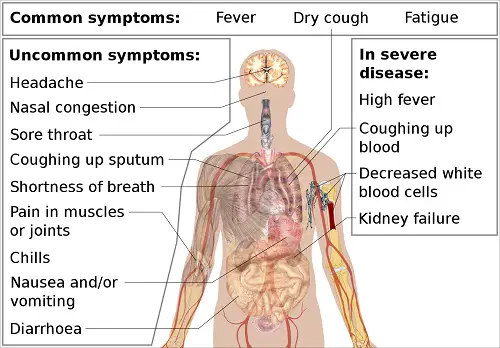|
TRANSLATE THIS ARTICLE
Integral World: Exploring Theories of Everything
An independent forum for a critical discussion of the integral philosophy of Ken Wilber
 Dr. Joseph Dillard is a psychotherapist with over forty year's clinical experience treating individual, couple, and family issues. Dr. Dillard also has extensive experience with pain management and meditation training. The creator of Integral Deep Listening (IDL), Dr. Dillard is the author of over ten books on IDL, dreaming, nightmares, and meditation. He lives in Berlin, Germany. See: integraldeeplistening.com and his YouTube channel. He can be contacted at: [email protected] Dr. Joseph Dillard is a psychotherapist with over forty year's clinical experience treating individual, couple, and family issues. Dr. Dillard also has extensive experience with pain management and meditation training. The creator of Integral Deep Listening (IDL), Dr. Dillard is the author of over ten books on IDL, dreaming, nightmares, and meditation. He lives in Berlin, Germany. See: integraldeeplistening.com and his YouTube channel. He can be contacted at: [email protected]
SEE MORE ESSAYS WRITTEN BY JOSEPH DILLARD Toward an Integral Response to CoronavirusJoseph Dillard
We are now leaving an age of vast complacency and entering a time of unexpected high risk that most of us have never previously encountered in our lives.
We are now leaving an age of vast complacency and entering a time of unexpected high risk that most of us have never previously encountered in our lives. To those born into entitlement, immediate gratification, and a politically correct culture used to blaming others or circumstances for misfortune, this will be a time of ascendency for fear porn and catastrophic drama. Under pressure, people tend to melt down, regress, and turn into incoherent blobs of early prepersonal self-interest. When entire societies are addicted to noospherically-oriented work and entertainment, the shock of encountering authentic physical threats and discomforts with no easy solution is going to be confusing at best and an occasion for prepersonal acting out at worst. Can Integral offer any realistic, meaningful alternative? Another framing of crisis is opportunity. It is time for us to be thinking about how Integral might offer something positive to a mass of panicked, confused people across the globe. A good rule of thumb is that 95% of all fears are false or overblown, but 5% will kill you. Discriminating between the two is the real challenge. How do we know when we are unnecessarily scaring ourselves or ignoring some genuine threat? A good example is global warming, where each side is quite convinced the other is brain dead. We don't want to get caught in the same position regarding Coronavirus, and it looks right now as if reality is not going to let us. As of March 7th, Northern Italy - half the country - has been put under quarantine. If present trends continue, the health care system in Italy will collapse in two weeks. Rates of infection in the US are following the trend lines seen in China, S Korea, Japan, and Italy. Will air travel within the US and globally be disrupted? Will we see massive shortages? Such thoughts, fantasies a week ago, are real possibilities now. Because the asymptomatic incubation period is so long - some 14 days - there is no guaranteed way to avoid the spread of this highly contagious virus short of moving into a cave in Tibet or living like a nomad for three months in a camper-trailer. It is now predicted that 40-70% of the global population will get coronavirus, with most not knowing they are carriers, or merely coming down with flu-like symptoms. For those over 60 or who are immune-compromised, it's the real deal: pneumonia-like symptoms requiring critical care, which may well not be available. The social and economic consequences are going to be tremendous and will overwhelm the ability of some nations to respond. Experts are saying an effective vaccination is 12 to 18 months away. Liz Specht, a PhD in biology and the associate director of Science and Technology for the Good Food Institute, has provided a cogent analysis[1]: 
China, after quarantining Hubai province with some 57 million people, and its capital, Wuhan, which has a population of 11 million, for at least two months, and showing an impressive decline in new cases of coronavirus, is now finding it reintroduced by travelers entering the country. Could the shutting down of air travel in and out of China be possible? Could the shutting down of commercial global air travel be possible? When we think about the highly infectious nature of this disease and then consider the conditions we experience at airports and on board airplanes, a combination of public intention and national policies may make such an incomprehensible possibility a reality. You have to decide for yourself whether the information and possibilities listed above and that you encounter in the media is fear mongering or not. What is over-reaction and what is not? We know that most cases of coronavirus will be mild or non-lethal, and that only those over sixty or who have immune systems that are jeopardized in several ways are likely to die. But even considering those realities, epidemiologists are now predicting millions of global deaths. In the light of this information we are tempted to throw up our hands and say, “What's the use? Que sera sera! Whatever will be, will be! However, how is such a response Integral? It isn't. It is the same resignation to “fate” practiced by the Greeks and Romans. Have we or have we not evolved since then?
What might an integral response to coronavirus look like? It will be multi-perspectival, which means that it will take into account the perspectives of each developmental level in tailoring responses and responsiveness. An integral response will also rely upon those lines which are most knowledgeable and capable at dealing with this variety of crisis. That would mean deferring to the judgment of medical and epidemiological experts. For those who challenge this conclusion, to what would you propose we defer? Intuition? Scripture? Politicians? Religious beliefs? Our own personal world view? To defer to the judgment of medical and scientific authorities is not the same as concluding that they are correct, infallible, or that the results of doing so may not be disastrous. Instead, it is to say that we are embarking on a mass experiment in who survives and fares well in this crisis and who does not: those who follow the advice of those most knowledgeable about this threat or those who choose some other alternative. We already have some results of that experiment; we can either learn from them or ignore them at our own risk. An Integral response will also take into account all four-quadrants. In the interior individual quadrant of feeling, thought, and intention, it will involve objectifying first emotional reactivity and then our reasoning about our circumstances. We cannot skip directly from emotional objectivity to trans-rational objectivity; we first have to deal with the crisis on a rational level in order to first include it and then transcend it. In order to do so, we need to squarely face our catastrophic expectations and worst-case scenarios, including the death of our loved ones, which for many of us is a worse outcome than our own death. What are your catastrophic expectations? What is your worst-case scenario? What steps do you have to take for preparing for them? At the least, we need to make a plan and talk it over with our families and loved ones. Surface their fears; help them to also make a plan involving at least the interior individual and collective as well as the exterior individual quadrants. Whether or not the plan is realistic or ends up being necessary or not, simply making one and sharing it is a huge comfort for most people. That sharing with others and helping others to devise their own plan, is a lower right quadrant response to the crisis. At this point I do not find it unrealistic to expect and plan for a global depression lasting years. It may not happen, but seriously considering that possibility and making a plan that addresses all four quadrants seems reasonable at this point. While voiding contact with others is often recommended, this is probably not very realistic and tends to generate a tendency to view others with apprehension. Psychologically, if not physically, that is probably going to do more harm than good. The reality is that there is over a 50% chance that we will catch coronavirus and we have something like a 2-3% chance of dying from it, with those rates skyrocketing if we are over sixty or have compromised immune systems. My wife Claudia and I, who are both in high-risk groups, are getting our affairs in order and considering what would be required to deal with coronavirus at home if the hospitals are overwhelmed. We want to have systems in place so we can forget about them and focus on being available to help those less prepared, both emotionally and physically, than ourselves. Everybody has to die of something, some day. If the coronavirus is our undoing, at least we can exit while attempting to be of service to others. Integralists can focus on maintaining a four-quadrant perspective, empathizing with the perspective of whomever we are dealing with, while modeling good problem-solving abilities, equanimity, thankfulness, and support. These are not only integral capabilities, but the best aspects of human nature, shining through in the midst of adversity. NOTES[1] Tyler Durden, "All Hospital Beds In The US Will Be Filled With Patients 'By About May 8th' Due To Coronavirus: Analysis", www.zerohedge.com, 03/07/2020. 
Source: Wikipedia
|